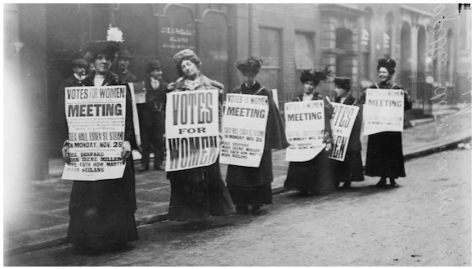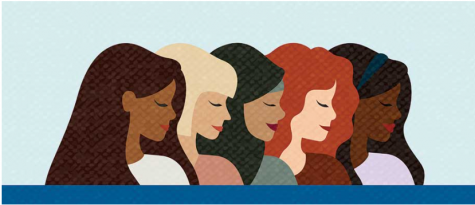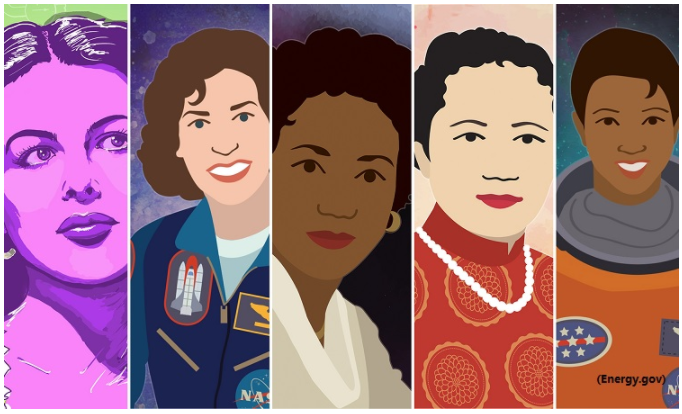Women’s History Month: What is it and what does it recognize?
To dive deep into Women’s History Month individuals can learn how to celebrate in different ways. Getting involved in organizations, posting on social media or even learning about a new historical figure all honor these women.
Mar 31, 2021
March. The month of March includes many notable days like Pi Day, Saint Patrick’s Day, and International Women’s Day as it happens to be Women’s History Month.
Women’s History Month is a celebration of the contributions and accomplishments made in women’s history. This month is a reminder to reflect on the developments in the past that paved the way for the future.
Originally, the celebration was a weeklong event which was organized by a school district in Sonoma, California. It soon became popular in many communities and the week of March 8 grew to become National Women’s History Week. After being petitioned, Congress expanded the week-long event to be celebrated the whole month of March.
It’s important to study women’s history and recognize the achievements of women in all facets of life – science, community, government, literature, art, sports, and medicine. Women including Sylvia Rivera, Jane Cooke Wright, Mary Ware Dennett, and Katherine Johnson are often left unnoticed or missed when it comes to achievements in women’s history.
“I think a lot of women and their achievements are overlooked,” sophomore Reilly Goueth said. “Women are a big part of history, we’ve done so much, we just don’t get enough recognition. A lot of the things that we do and use in our regular lives were created or invented by women.”

Activism has played a huge role in women’s history. People like Susan B. Anthony and Elizabeth Cady Stanton are well known for exercising their First Amendment Rights. They fought for the rights of women and led the National Woman Suffrage Association which secured women’s right to vote.
Consistent activism has worked in the past and it continues to be a part of the present. Women today still face discrimination due to sexism and debates over reproductive rights and equal pay are some of the most popular issues surrounding women.
“I notice that there is a lot of sexualizing women and not appreciating what a woman can do. It’s really frustrating because there are so many things that women can achieve that aren’t always valued,” sophomore Olivia Denton expressed.
Feminism is another word used to describe female activism. In the past, it has been a controversial topic. Some people believe there has already been equality established between men and women and some disagree. Others believe there shouldn’t be equal opportunities between men and women.
“It’s equal rights for men and women but some women can take feminism too far,” sophomore Peyton Godard said.
Extraordinary women have come from all over the place leaving their mark on history. However, countless people have developed feelings of admiration for certain figures.

Amelia Earhart rose to fame after she became the first woman to fly solo over the Atlantic Ocean. Harriet Tubman was born into slavery but was able to escape and led other slaves and family members with her on the “Underground Railroad” to freedom. Marie Curie is remembered for her work in radioactivity for which she was awarded a Nobel Prize.
These women have taught people numerous things including bravery, courage, and determination. Other individuals also have more personal beloved figures who inspire them.
“My mom… she’s tough and she doesn’t really let anyone get in her way [when] she’s really determined. That’s something I aspire to do as well,” Goueth explained.
Being a woman means different things to different people.
“Being a woman means being powerful, strong, and also being in touch with your emotions,” Godard stated. “I feel like we are very mature [emotionally and physically], and confident.”
Katherine Johnson once said, “Girls are capable of doing everything men are capable of doing.”
This month encourages the nation to acknowledge these accomplishments and gain inspiration from them.







Jane Doe ◊ Apr 1, 2021 at 9:57 am
Sylvia Rivera wasn’t even involved with gay activism and has said themselves they were not there. It’s genuinely disheartening to see a spot that could’ve been used to celebrate someone who actually did have an impact on that (Storme DeLarverie, the black lesbian consistently left out of the conversation despite the many firsthand accounts giving credit to her) for someone who… literally wasn’t there.
This article is really well written, and I did enjoy reading it, but the consistent misinformation all over the internet has to stop somewhere, right?